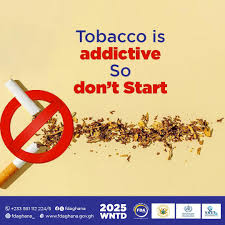In a landmark move aimed at promoting educational equity and restoring the dignity of girls across the country, President John Dramani Mahama has launched the National Sanitary Pad Distribution Program, a policy designed to ensure that no girl child in Ghana misses school due to menstruation.
The program fulfils a major campaign promise by President Mahama and forms a cornerstone of his broader agenda to “reset” the nation’s priorities, particularly in the areas of education, public health, and social protection.
Recounting the origins of the initiative, President Mahama traced the idea back to 2014, during his first term in office.
At the time, his Minister for Education, Professor Naana Jane Opoku-Agyemang—now his vice President—had spearheaded Ghana’s partnership with the World Bank under the Secondary Education Improvement Program (SEIP).
That program included scholarships for brilliant but needy girls and support for female participation in STEM (Science, Technology, Engineering, and Mathematics) education.
But notably, it also piloted the provision of sanitary pads to girls in secondary school—a then-novel and controversial intervention.
“I remember when we tried to pass it through Parliament, our opponents mocked it as the ‘pad loan.’ They found it strange that a government would take a loan to supply sanitary pads. That showed how little understood the issue was at the time, even among lawmakers.”
HE President John Dramani Mahama
He reflected on learning for the first time about the struggles young girls face during their menstrual cycles, many of whom skip school out of fear of soiling their uniforms or becoming the subject of ridicule.
According to the President, menstruation is a natural process of creation, asserting that the least the country can do is to support its daughters to go through it with dignity and hygiene.

A Policy Whose Time Has Come
In his speech, President Mahama emphasised that the time had come for society to move past the stigma and silence that often surrounds menstruation.
He noted that research has shown that girls can miss up to five school days a month due to lack of access to menstrual hygiene products, translating into nearly forty days of missed schooling each year.
This statistic, he argued, represents a young girl losing ground in her education, confidence, and opportunities.
“This reality is unacceptable in Ghana, where we aim for progress, equity, and justice, this must not continue. Menstruation should never be a reason for exclusion or shame.
“It should not be a barrier to education or self-achievement. And that is why this program exists: to remove one of the silent yet powerful obstacles standing in the way of our girl child’s dreams.”
HE President John Dramani Mahama
The sanitary pad initiative, President Mahama stressed, is more than the distribution of a product; it is a declaration that no biological process should stand in the way of a girl’s education.
The program aims to reach thousands of schoolgirls across all districts, especially in underprivileged and rural communities.
Collaboration Across Ministries
The initiative is being implemented through a coordinated effort involving the Ministry of Education, the Ministry of Gender, Children and Social Protection, and the Ministry of Finance.
According to President Mahama, it aligns with Ghana’s commitment to the United Nations Sustainable Development Goals (SDGs), particularly SDG 4 (Quality Education) and SDG 5 (Gender Equality).
But for President Mahama, the initiative goes beyond international frameworks, as it is rooted in the Ghanaian values and belief in fairness, dignity, and equal opportunity for all children, boys or girls.
He extended gratitude to civil society organisations and development partners who have long advocated for such measures, noting that their persistence has helped push the conversation into the national spotlight.

A Call to the Private Sector
In a forward-looking section of his speech, President Mahama called on the private sector and traditional leaders to partner with the government in building domestic capacity for local production of sanitary pads.
He urged the private sector to invest in local sanitary pad manufacturing, highlighting the potential for creating employment and stimulating economic activity, especially among women-led enterprises.
“Let us create jobs while keeping our girls in school. Let this become not just a social program, but a growing national enterprise. Ladies and gentlemen, we’re doing more than launching a policy.
“We’re nurturing a movement, A movement that protects the future of our girls. A movement that celebrates their resilience. A movement that finally tells them in action and not just in words”.
HE President John Dramani Mahama
The President’s message was clear and stirring: this initiative is about telling Ghanaian girls that they matter.
“You are not invisible. We see you. We believe in your potential,” he said, addressing the young girls directly. “We will stand with you every month, every term, and every year.”
He acknowledged the burdens carried by parents who have had to choose between buying food, books, or sanitary pads. “Help is here, and help is here to stay,” he assured.

President Mahama also praised teachers and school administrators for their frontline role in observing the struggles of their students and encouraged them to become champions of the initiative in their schools.
“You see the tears. You note the absences. Now you will see the transformation.”
HE President John Dramani Mahama
A Tribute to Professor Opoku-Agyemang
President Mahama also extended well-wishes from Professor Naana Jane Opoku-Agyemang, who was absent from the event.
“This is a program very dear to her. She is recuperating and catching a bit of rest, but she sends her greetings and her assurance that she will soon rejoin us to continue prosecuting the reset agenda.”
HE President John Dramani Mahama
Her absence was notable, but her presence was felt throughout the event as the architect of the early efforts to address menstrual health challenges in schools.
In concluding his remarks, President Mahama framed the sanitary pad initiative as not just a policy, but a movement—one that celebrates the resilience of Ghanaian girls and breaks long-standing taboos.
“This program is a challenge embraced and a future protected. It is proof that when we act with compassion and commitment, we can remove the silent barriers that hold our children back.”
HE President John Dramani Mahama
The launch of the National Sanitary Pad Distribution Program is expected to mark a turning point in how menstrual health is treated in public education policy.
For thousands of girls, it is the beginning of a new era—one of dignity, inclusion, and equal opportunity.
READ ALSO: Government Accelerates E-Mobility Transition Plan







